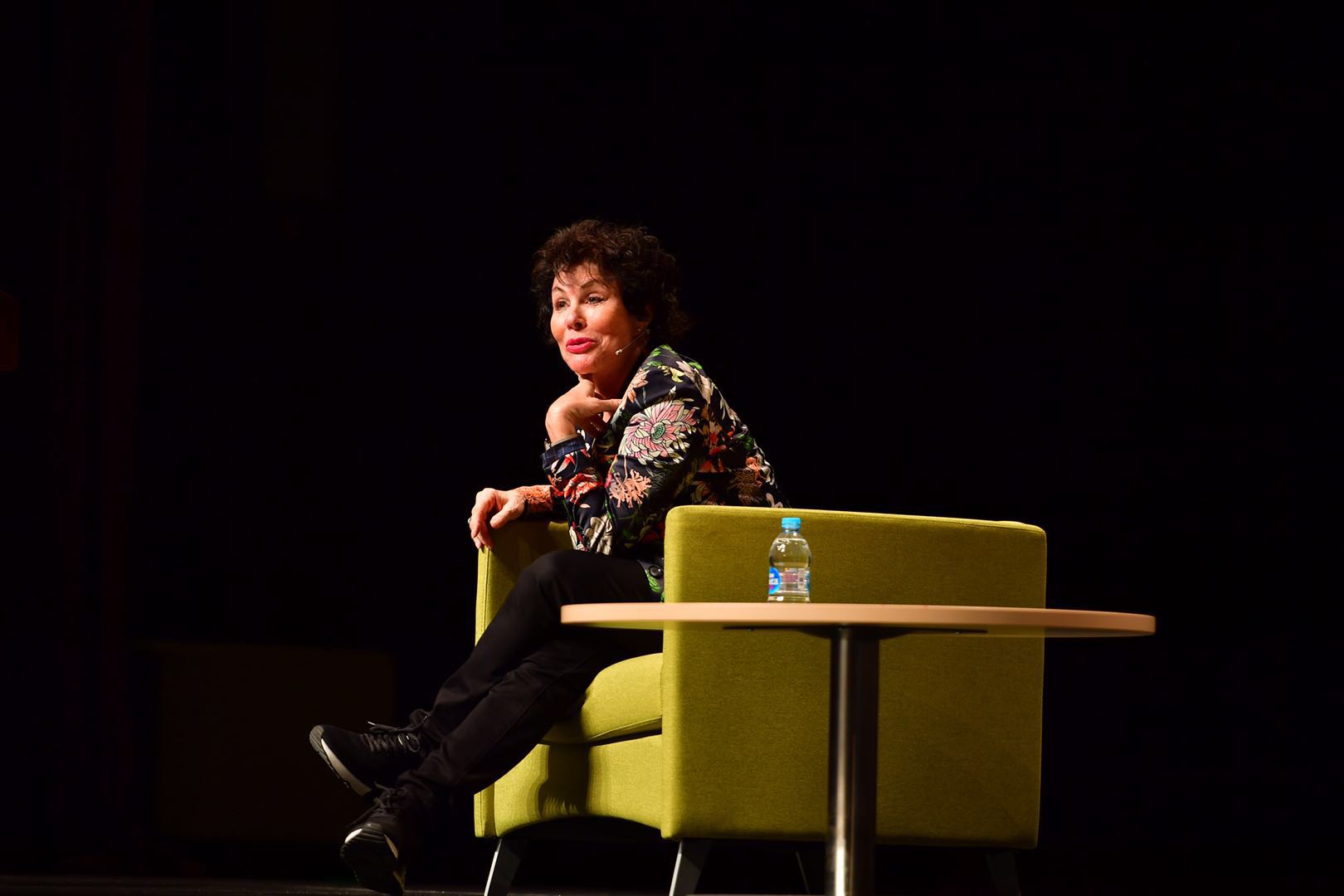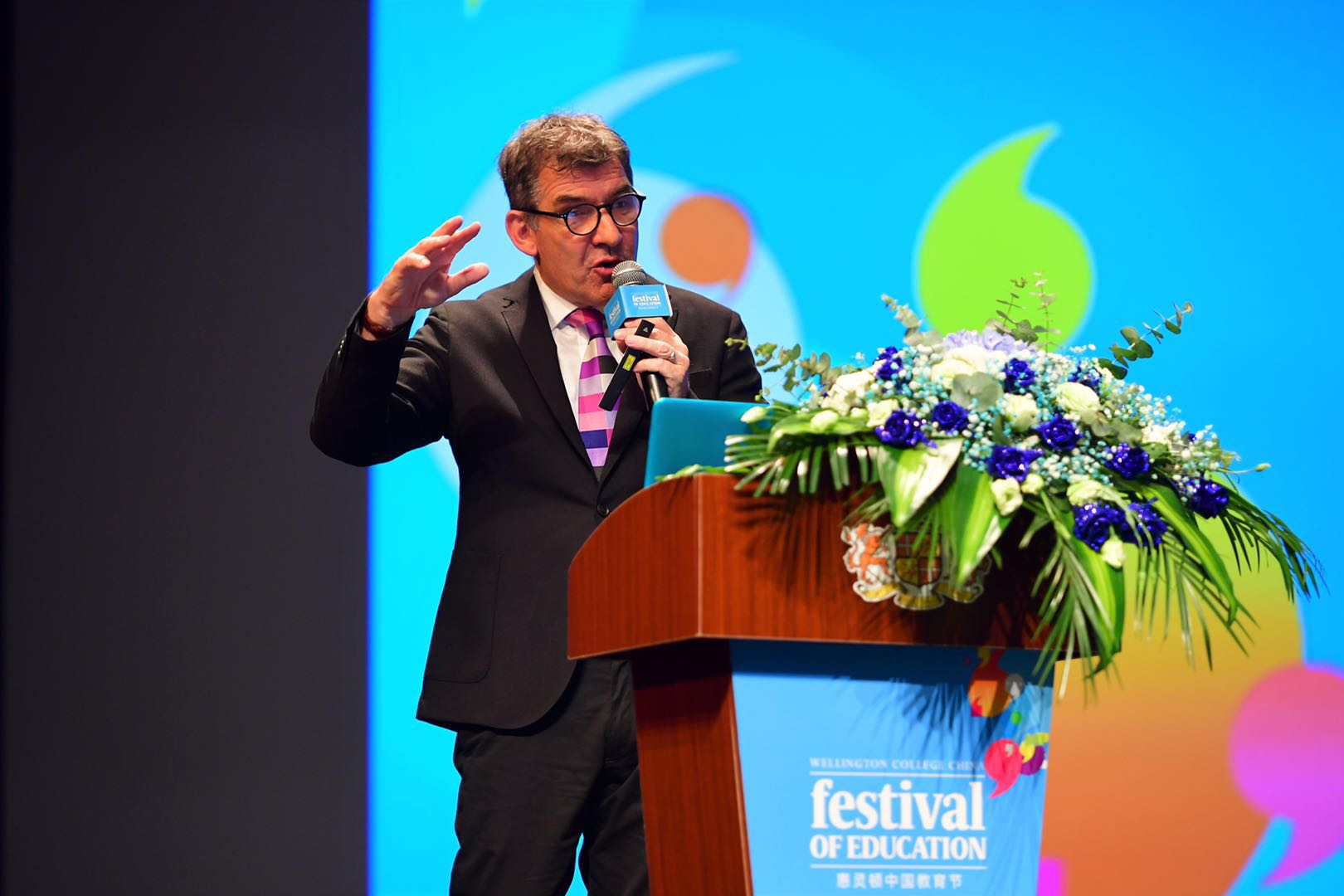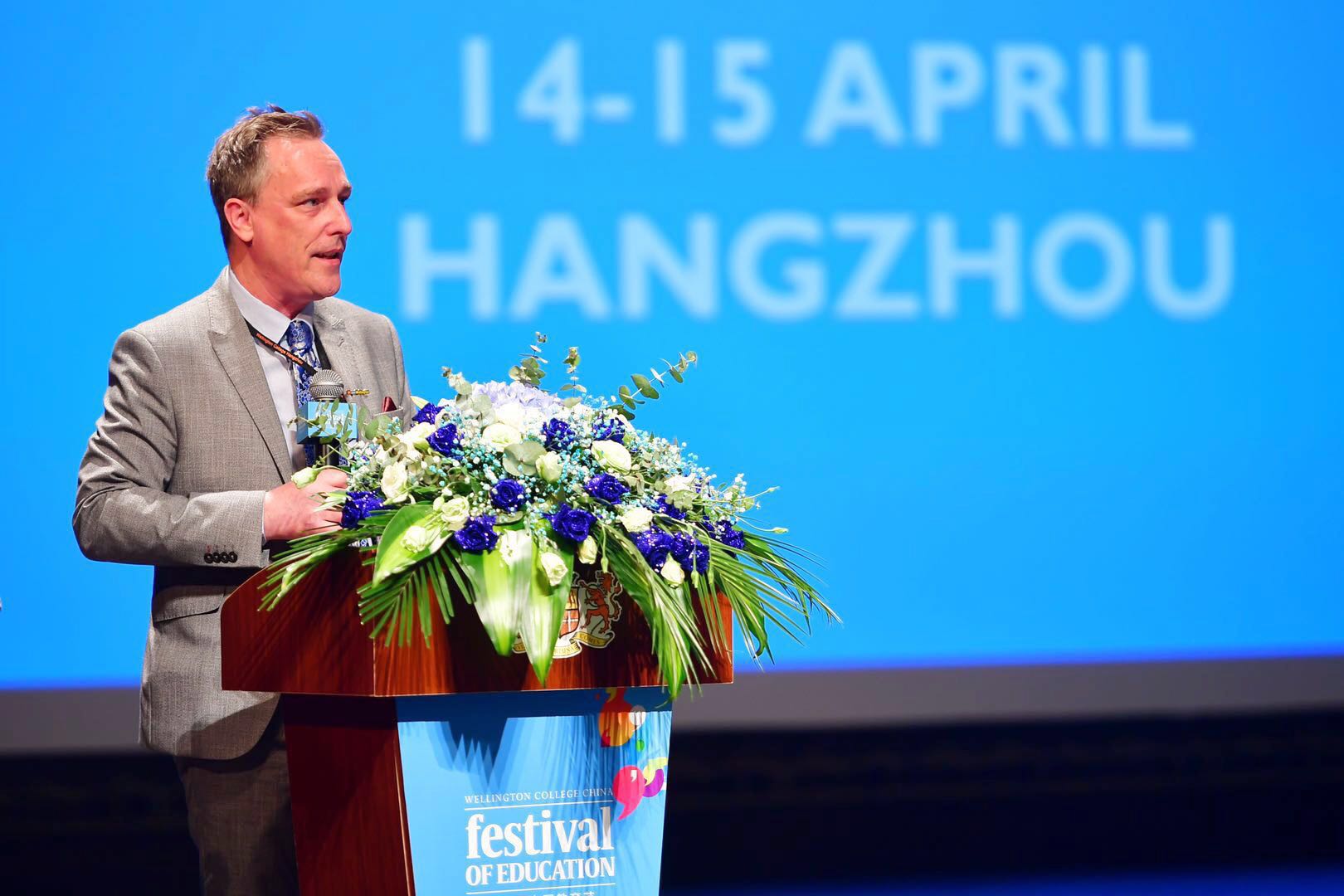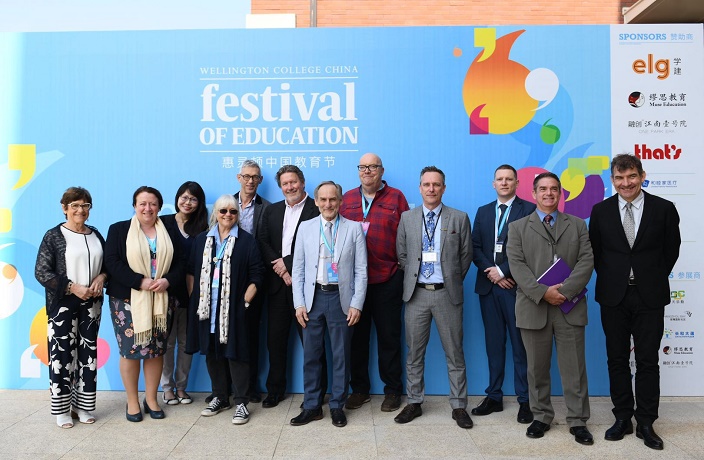Wellington College International Hangzhou successfully held their inaugural Festival of Education in Hangzhou on April 14-15. The event brought together 13 speakers to deliver 29 presentations, talks and workshops across the two days, inspiring over 500 participants from Hangzhou and the surrounding regions to explore, celebrate, learn, debate and connect.
The Festival provided an opportunity for those passionate about education to debate current and emerging themes in education, and to hear from a range of speakers who challenged norms and raised new ideas about how the educational landscape will evolve to adapt in a rapidly changing world. This year's festival provided additional opportunities for in-depth discussion on the five key strands of; Early Years, Wellbeing, a Developing Romance between Chinese and British education, Exploring Education and Multilingualism.

Key speakers included Ruby Wax
Key speakers included Ruby Wax, renowned writer, comedian, performer and mental health campaigner; Professor Sir Jonathan Bate, eminent intellectual, Shakespeare scholar, writer, and broadcaster; and Professor Ferre Laever, the inventor of the Leuven Scales for emotional wellbeing. The broad range of speakers from diverse backgrounds provided opportunities for festival participants to explore the festival strands from a range of perspectives.
After an insightful two days of talks, we sat down with Dr. Stephen Jacobi, the Festival's Director, and Paul Rogers, Executive Master of Wellington College Hangzhou.
What is the philosophy of the Festival of Education?
Dr. Stephen Jacobi: Education is a way we react with the rapidly changing world. To better address education-related issues, the Festival of Education brings experts from around the world together to Hangzhou, gathering different opinions and views for in-depth debate. It does not only discuss today's challenges, but also aims to predict future needs in international education.
We're at the point where education is about to rotate through 180 degrees in what it wants to achieve, and what subjects are going to be privileged. One of the speakers here, Professor Sir Jonathan Bate, has given up his post of Professor of Literature at Oxford University – not an easy thing to do – to go to Arizona to take charge of the Department of Sustainability. Now, 50 years ago if you had said to someone "We're going to have a Department of Sustainability," they'd have said, "What an Earth are you talking about?"
That is an indication of how priorities in the world are changing. What do we as humans need to do to sustain our existence? Education is rotating and reacting to that. This festival is about making sure that doors are open, that we are listening to debate, that educational issues are voiced. And that inappropriate education isn't allowed to persist without some voice around it.

Dr. Stephen Jacobi, Festival Director
What has been the biggest gain from the festival for the Wellington family?
Paul Rogers: Having world renowned speakers here has been fantastic. Not only for the parents and visitors who have attended, but also for our teaching staff. Our teaching staff have been talking to them as much as they can, trying to glean as much information as they possibly can from those visitors.
Dr. Stephen Jacobi: Wellington is a big name in education, so it has a responsibility to not just take from education, but to give something back. That sounds a bit corny, but it is true I think. The gain is that it is fulfilling that duty towards what it depends on: education. It keeping the balls in the air.
How do you feel the first Hangzhou festival went?
Dr. Stephen Jacobi: This is very much a first go. We weren’t quite sure what the audience was going to be like, and we were very pleasantly surprised. Several of the speakers commented on how enthusiastic and how involved and interested the audience members were. Without parental involvement, schools wouldn’t function in the way they do. You need parents to be involved; you need them to be interested in what's happening.

Paul Rogers, Executive Master of Wellington College Hangzhou
What qualities should a school have to cultivate their students?
Paul Rogers: They need a lot of things. Good quality teachers who understand their children; teachers who are motivated and committed. That is the most important thing. Then you need a strong curriculum, but flexible. Teachers who understand how to use that curriculum. The right resources, the building, the right environment, the right culture and the right vision.
All good schools start with a good strong vision. Part of our strong vision is about a caring community which we think is very, very important. But ultimately it all comes back to the teaching staff themselves.
To hear more from Wellington College International Hangzhou, click here or scan the QR code below to follow their official WeChat account

If you would like to join the Wellington community, whether you are planning on moving to Hangzhou or you are already based in Hangzhou, you can arrange an on-site visit by clicking the link. Our admissions team are on stand-by to host you for a personalised campus tour and to help you discover what makes Wellington special.
[All images via Wellington College International Hangzhou]


















